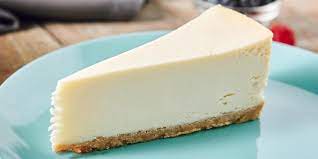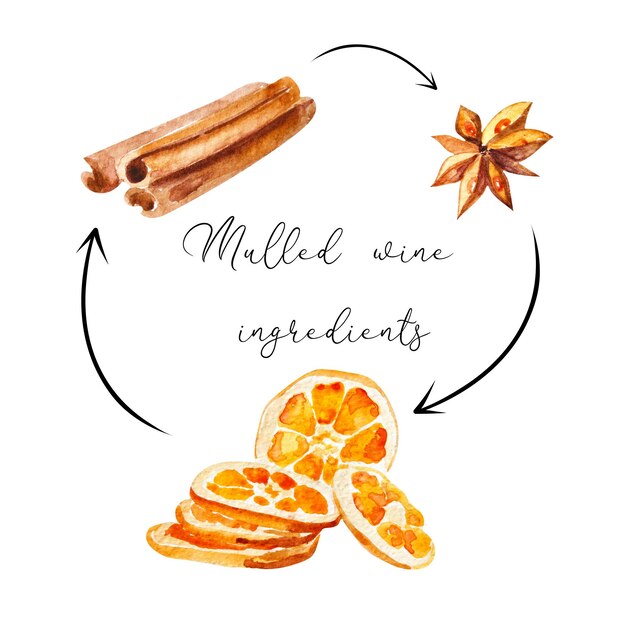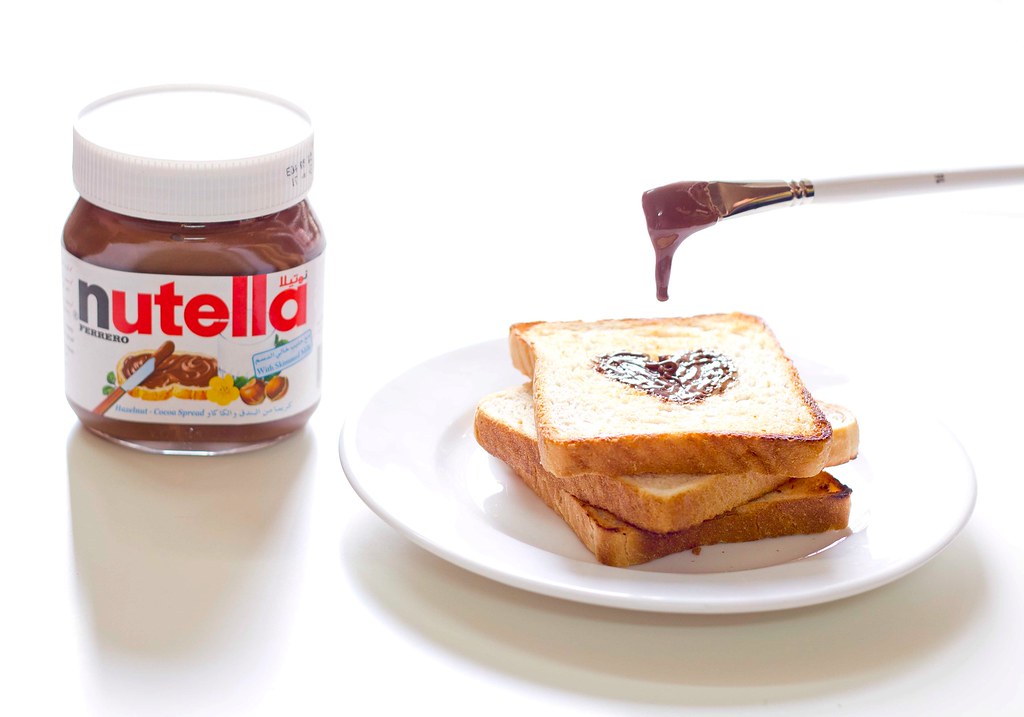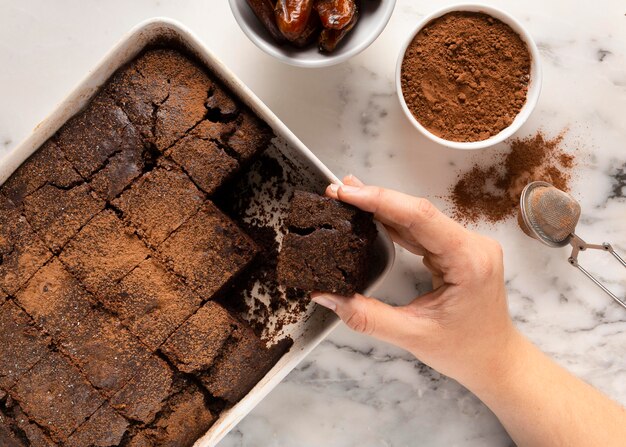How to Store Cheesecake in the Fridge and Keep It Fresh for Longer
There’s nothing quite like indulging in a rich, creamy slice of cheesecake. Whether it’s plain, topped with fruity goodness, or drizzled in chocolate, cheesecake is a dessert favorite for many. But what happens when you have a whole cheesecake to yourself? How long can you keep it in the fridge before it goes bad?
When stored properly, cheesecake can last for quite a while in the fridge. The typical shelf life of a cheesecake is around five to seven days, but this can vary depending on the ingredients used and how it’s stored. It’s important to note that homemade cheesecakes made with fresh ingredients won’t last as long as store-bought ones due to the absence of preservatives.
So, how do you ensure your cheesecake stays fresh for as long as possible? Firstly, make sure to keep it stored in an airtight container or wrap it tightly in plastic wrap. This will prevent any odors or flavors from other foods in your fridge from seeping into the cheesecake. Additionally, storing it on a shelf rather than in the door of the fridge will provide a more consistent temperature, helping to preserve its freshness.
Proper Storage Guidelines for Cheesecake
Proper storage is crucial to maintain the freshness and quality of your cheesecake. By following these guidelines, you can prolong the shelf life of your cheesecake:
Refrigerate within Two Hours
After serving your cheesecake, it is important to refrigerate any leftovers within two hours to prevent bacterial growth. Leaving the cheesecake at room temperature for an extended period can lead to spoilage.
Keep in an Airtight Container
Transfer the cheesecake to an airtight container or cover it tightly with plastic wrap before placing it in the refrigerator. This will help prevent the cheesecake from drying out and absorbing odors from other foods in the fridge.
Separate from Strong Odors
Since cheesecake easily absorbs odors, it is best to store it away from strong-smelling foods like onions and garlic. Consider placing the cheesecake on a separate shelf or in a sealed drawer to avoid any unwanted flavors.
Use within a Week
While cheesecake can last up to a week in the refrigerator, it is recommended to consume it within 3-5 days for optimal freshness and taste. As time goes on, the texture and flavor may begin to deteriorate.
By following these proper storage guidelines, you can keep your cheesecake delicious and enjoyable for longer. Remember to always use your judgment and discard any cheesecake that appears to be spoiled or has an off odor.
Factors Affecting the Shelf Life of Cheesecake
When it comes to the shelf life of cheesecake, several factors come into play. These factors can significantly impact how long your cheesecake will stay fresh and safe to consume. Here are the key factors that affect the shelf life of cheesecake:
1. Ingredients
The ingredients used in the cheesecake recipe play a vital role in determining its shelf life. For example, using fresh and high-quality ingredients, such as cream cheese, eggs, and sugar, can contribute to a longer shelf life. Cheesecakes made with expired or low-quality ingredients may spoil quickly and should not be consumed.
2. Storage Conditions
The way you store your cheesecake can greatly impact its shelf life. Cheesecakes should always be stored in the refrigerator to keep them cool and prevent bacterial growth. It is essential to cover the cheesecake with plastic wrap or store it in an airtight container to prevent it from drying out or absorbing any odors from the refrigerator.
Additionally, it’s important to place the cheesecake on a flat surface to avoid any damage or shifting during storage. This can help maintain the texture and appearance of the cheesecake for an extended period.
3. Temperature Fluctuations
Cheesecake is sensitive to temperature changes. Exposure to extreme heat or cold can affect the quality and texture of the cheesecake. Rapid temperature fluctuations can cause the cheesecake to spoil or become unappetizing.
It is crucial to ensure that the cheesecake remains at a consistent temperature throughout its storage. Avoid placing the cheesecake near a heat source or in direct sunlight. Similarly, placing a warm cheesecake in the fridge can cause condensation, affecting its texture and increasing the risk of spoilage.
4. Freshness at the Time of Purchase
The freshness of the cheesecake at the time of purchase also impacts its overall shelf life. If you buy a cheesecake that is already close to its expiration date, its shelf life will be shorter compared to a freshly made one. Always check the expiration date and choose a cheesecake with the longest possible shelf life.
5. Handling and Serving Practices
The way you handle and serve your cheesecake can also affect its shelf life. Using clean utensils and cutting the cheesecake with a clean knife can prevent cross-contamination and extend its shelf life. Additionally, serving the cheesecake immediately after cutting and covering any leftovers properly can help maintain its freshness for a longer duration.
| Factor | Impact on Shelf Life |
|---|---|
| Ingredients | Determines the overall quality and longevity of the cheesecake |
| Storage Conditions | Proper storage helps keep the cheesecake fresh and safe to consume |
| Temperature Fluctuations | Exposure to extreme temperatures can spoil or affect the texture of the cheesecake |
| Freshness at the Time of Purchase | Affects the initial shelf life of the cheesecake |
| Handling and Serving Practices | Proper handling and serving practices can extend the shelf life of the cheesecake |
By considering these factors and taking necessary precautions, you can maximize the shelf life of your cheesecake and enjoy it for a longer period without compromising its quality and taste.
The Average Lifespan of Cheesecake in the Fridge
Cheesecake is a delightful dessert that many people enjoy. However, it is important to know how long it lasts in the fridge to ensure its freshness and quality. On average, cheesecake can last in the fridge for about 5 to 7 days.
It is crucial to properly store your cheesecake to extend its shelf life. After enjoying a slice or two, make sure to cover the remaining cheesecake tightly with plastic wrap or place it in an airtight container. This will prevent air and moisture from entering, which can cause the cheesecake to spoil faster.
When storing cheesecake in the fridge, it is best to keep it on the bottom shelf. This will help maintain a consistent temperature and prevent any potential cross-contamination from other foods. Additionally, avoid storing the cheesecake near strong-smelling foods as it can absorb odors easily.
If you have a particularly large cheesecake or simply cannot finish it within the desired timeframe, you can also freeze it. Wrap the cheesecake tightly in plastic wrap and place it in a freezer-safe container. When you’re ready to enjoy it again, simply thaw it in the fridge overnight.
It’s important to note that these are just general guidelines, and the lifespan of your cheesecake may vary depending on factors such as the ingredients used and how it was made. Always use your best judgment and rely on your senses to determine if the cheesecake is still safe to eat.
By following these storage tips and being mindful of the average lifespan of cheesecake in the fridge, you can enjoy this delectable dessert without any worries!
Signs of Spoiled Cheesecake
1. Mold or strange growth: If you notice any visible mold or unusual texture on the surface or inside the cheesecake, it is a clear sign that it has spoiled. Do not consume it.
2. Off smell: A spoiled cheesecake may have a sour or off-putting odor. If it smells bad or different from its usual aroma, it is best to discard it.
3. Discoloration: If the cheesecake has changed in color, such as darkening or developing green or blue spots, it is a sign of spoilage. This discoloration indicates the growth of bacteria or mold.
4. Excessive moisture: A fresh cheesecake should have a smooth and creamy texture. If it becomes excessively moist, watery, or develops puddles of liquid, it may be spoiled. This could be a result of bacteria or yeast growth.
5. Foul taste: When cheesecake goes bad, its taste changes significantly. If you notice any off or unpleasant taste, it is a good indication that it has spoiled. Trust your taste buds and avoid eating it.
6. Expired date: Always check the expiration date on the packaging or label. If the cheesecake has passed its expiration date, it is likely spoiled and should not be consumed.
Remember, consuming spoiled cheesecake can lead to food poisoning or other adverse health effects. It is better to be safe than sorry, so if you have any doubts about the freshness or quality of your cheesecake, it is best to discard it.
Make Your Cheesecake Last Longer with These Tips
If you want to make your cheesecake last longer in the fridge and enjoy it for a few extra days, here are some tips that can come in handy:
1. Store it properly: After you have indulged in a delicious slice of cheesecake, make sure to store the remainder properly. Transfer the cheesecake to an airtight container or cover it tightly with plastic wrap before placing it in the refrigerator. This will help prevent the cake from drying out and absorbing any unwanted odors or flavors.
2. Keep it cool: Make sure that your refrigerator is set to the correct temperature (around 35-40°F or 2-4°C) to ensure that your cheesecake stays fresh for a longer period. Also, avoid placing the cheesecake near items with strong odors, as it can absorb them easily.
3. Preserve the crust: If your cheesecake has a crust, consider leaving it untouched until you are ready to serve it. This will help maintain the crispness and prevent it from becoming soggy over time.
4. Freeze it: If you know you won’t be able to finish the cheesecake within a few days, consider freezing it. Wrap individual slices in plastic wrap and place them in a freezer-safe container. Make sure to label them with the date for easy reference. Frozen cheesecake can last for several months and still maintain its texture and flavor.
5. Portion control: When serving the cheesecake, cut only the slices that will be consumed. This will prevent any unnecessary exposure to air and help to maintain its freshness.
6. Enjoy it sooner rather than later: While cheesecake can last for a few days in the fridge, it is always best to enjoy it as soon as possible to savor its fresh flavors and textures. Cheesecake is at its best when consumed within 3-5 days of being made.
By following these tips, you can make your cheesecake last longer and enjoy it for days to come. So go ahead and savor every creamy and delicious bite!
Can You Freeze Cheesecake for Extended Storage?
If you have a surplus of cheesecake or want to prepare it in advance for future occasions, you might be wondering if freezing it is a viable option. The good news is that you can freeze cheesecake for extended storage!
Cheesecake can be frozen to preserve its freshness and flavor for up to several months. However, it’s essential to follow certain guidelines to ensure the best results:
Preparation:
Before freezing, make sure your cheesecake is completely cooled to room temperature. This step is crucial to prevent condensation from forming during the freezing process, which could negatively affect the texture of the cheesecake.
Wrap and Package:
Wrap the cheesecake tightly in plastic wrap or aluminum foil, ensuring there are no exposed areas. For added protection against freezer burn, consider placing the wrapped cheesecake in a freezer bag or airtight container.
Freezing:
Place the wrapped cheesecake in the freezer on a flat surface to freeze it properly. Avoid stacking anything on top of the cheesecake to prevent distortion or damage. It is recommended to freeze the cheesecake for a minimum of 2-3 hours or until it is completely frozen solid.
When storing the cheesecake in the freezer, make sure to choose a spot where it won’t be subjected to temperature fluctuations, such as the back of the freezer.
Thawing:
To thaw a frozen cheesecake, transfer it to the refrigerator and let it defrost slowly for at least 24 hours. This gradual thawing process will help maintain the texture and prevent any potential condensation.
Avoid thawing the cheesecake at room temperature or using the microwave, as these methods can lead to uneven thawing and compromise the taste and texture of the dessert.
Once the cheesecake has thawed, it is best to consume it within 2-3 days for the optimal taste and texture. Keep in mind that previously frozen cheesecake may not be as creamy as fresh cheesecake but will still be enjoyable.
So, whether you’re planning ahead for a special occasion or happen to have leftover cheesecake, freezing it can be a convenient and effective way to extend its storage life while preserving its deliciousness!
“FAQ:” How long does cheesecake last in the fridge
What are the key principles of food safety, and why is it important in the kitchen?
Food safety encompasses practices to prevent foodborne illnesses. It is crucial in the kitchen to ensure that food is prepared, stored, and handled in a way that minimizes health risks.
How can graham crackers contribute to creating decadent desserts, and what are some popular recipes that feature them?
Graham crackers, with their sweet and slightly nutty flavor, can be used as a base for various decadent desserts like cheesecakes, pies, and bars. Some popular recipes include classic cheesecake and s’mores bars.
Why is it essential to be mindful of perishable items in meal preparation, and how can proper storage practices enhance food safety?
Perishable items can spoil or harbor harmful bacteria if not stored correctly. Proper storage practices, such as refrigeration and timely consumption, help prevent spoilage and ensure food safety.
What is the significance of a water bath in cooking, particularly in the context of desserts, and how does it contribute to the texture of certain dishes?
A water bath involves placing a baking dish in a larger pan filled with water during cooking. In desserts, it helps maintain a gentle and even temperature, contributing to the creamy and smooth texture of dishes like custards and cheesecakes.
How does the USDA (United States Department of Agriculture) contribute to ensuring food safety, and what resources do they provide for consumers?
The USDA plays a crucial role in ensuring food safety by establishing regulations, inspecting food production facilities, and providing educational resources. Consumers can access guidelines, tips, and information on safe food handling through the USDA’s website.
How long does a baked cheesecake last, and what factors affect its shelf life?
A baked cheesecake can last about a week in the fridge. Factors such as ingredients, storage conditions, and dairy content can impact its shelf life.
Is it necessary to refrigerate a store-bought cheesecake, and for how long can it sit at room temperature?
Yes, store-bought cheesecake needs to be refrigerated. It should not sit at room temperature for more than 2 hours to prevent the risk of food poisoning.
Can a no-bake cheesecake be stored in the fridge, and how long can it last?
Yes, a no-bake cheesecake should be stored in the fridge. It can last for about 3 to 4 days, and freezing is recommended for longer storage.
What precautions should be taken when serving cheesecake, and why is it advised to cut it into smaller pieces?
Cheesecake should be served with clean utensils to avoid contamination. Cutting it into smaller pieces helps preserve its freshness and prevents it from drying out.
How can you tell if a cheesecake has gone bad, and what signs indicate that it’s time to discard it?
Signs that a cheesecake may have gone bad include an off smell, mold growth, or changes in texture. If any of these signs are present, it’s advisable to discard the cheesecake.
When storing a freshly baked cheesecake, what steps should be taken to ensure its quality and prevent it from drying out?
To store a freshly baked cheesecake, let it cool completely, then wrap it in aluminum foil or plastic wrap. Placing it in an airtight container or cake carrier further helps maintain its quality.
What are the recommended methods for freezing cheesecake, and how well does it freeze?
Cheesecake freezes quite well. To freeze, wrap individual slices in freezer wrap or aluminum foil. Ensure the cake is cool before freezing to preserve its texture.
Are there specific tips on how to store cheesecakes without compromising their taste and texture?
Some tips for storing cheesecakes include wrapping the cake well, using an airtight container, and avoiding direct exposure to air. Freezing is also recommended for extended storage.
How does the choice of crust, whether graham cracker or cookie crust, impact the storage and freshness of a cheesecake?
The choice of crust doesn’t significantly impact storage, but a graham cracker crust may absorb moisture more than a cookie crust. Proper wrapping and storage are key to maintaining freshness.
Why is it essential to cool a cheesecake in the refrigerator before freezing, and what precautions should be taken during the cooling process?
Cooling a cheesecake in the refrigerator before freezing helps set its structure. Precautions during the cooling process include placing a layer of aluminum foil on top to prevent condensation and maintaining a stable temperature.
How long does a cheesecake last, and what is the recommended storage method?
A cheesecake can last for about a week in the fridge. It should be put in the fridge as soon as possible after serving to maintain its freshness.
Why is it essential to refrigerate a cheesecake, and what happens if it’s left at room temperature for an extended period?
Refrigerating a cheesecake is crucial as it is highly perishable. If left at room temperature for more than 2 hours, there is an increased risk of spoilage and food poisoning.
What precautions should be taken to ensure a cheesecake doesn’t dry out when stored in the fridge?
To prevent a cheesecake from drying out, it’s important to wrap it well in plastic wrap or aluminum foil. Ensuring an airtight seal helps maintain its moisture.
How can you tell if a cheesecake has gone bad, and what signs indicate that it’s no longer safe to eat?
Signs that a cheesecake may have gone bad include an off smell, mold growth, or changes in texture. If any of these signs are present, the cheesecake should be discarded.
Is it advisable to freeze cheesecake, and what steps should be followed when freezing slices or a whole cake?
Yes, it is advisable to freeze cheesecake for extended storage. When freezing, make sure to wrap slices or the whole cake in freezer wrap or aluminum foil. Dairy ingredients, whipped cream, and fresh fruits should be taken into consideration during the freezing process.





